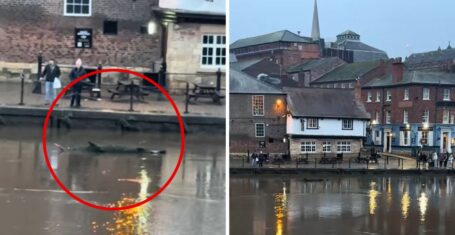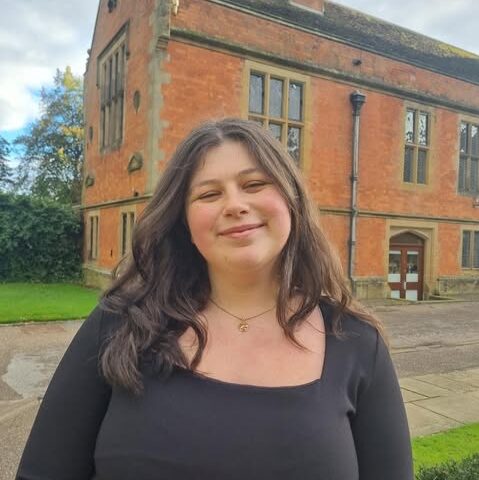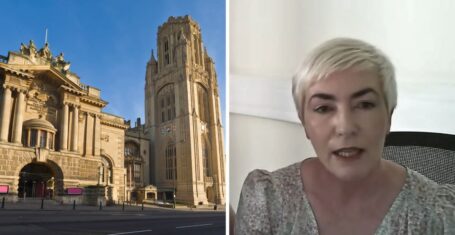
I went to a Just Stop Oil talk in Birmingham: Here’s what they had to say
Birmingham students are taking part in a new wave of action
Just Stop Oil have hit the headlines again this month after a wave of action has seen hundreds of individuals, including students from Birmingham universities, slow-marching to the point of arrest in London. Just last month, student Harrison Donnelly painted the University of Birmingham Main Library orange before displaying a Just Stop Oil banner and delivering a speech about the university’s investments in the fossil fuel industry.
Often controversial, the group have frequently been in the news since they were first founded in February 2022, due to their program of nonviolent civil resistance. As part of a new drive to attract students to their cause, Just Stop Oil have appointed university coordinators and created local branches to hold weekly recruitment meetings and spread their message.
Last month, I headed over to one of these talks at the Friends of the Earth Warehouse in Birmingham. Here is what young people in Birmingham had to say about their protests against the government’s licensing of new coal, oil and gas projects.

Crowds gathered after Harrison Donnelly threw paint at the UoB Main Library
Mobilising climate activists on a national scale
Florrie, a 22-year-old graduate from the University of Birmingham, discussed her experience with joining the protest group, from going along to a meeting to becoming the regional coordinator.
She reflected on realising what set Just Stop Oil members apart: “It wasn’t until my Mum joined Just Stop Oil that I realised that the only ‘special’ thing about these people, the type of people to sit in roads, was their deep, deep ability to care, and their immense courage to step out of the bubble of what we are told to do, and stand up for what they know is right.”
Most Read

Just Stop Oil Poster on Exeter Road
Another speaker, Matt, a 19-year-old student from Belfast, recounted that prior to joining the organisation, he felt that his desire to be involved in climate action was isolating. This experience was shared by many in the group, who felt like “the floor had been ripped out” when they began to learn about scientist’s projections for the future of the climate crisis.
“At my first Just Stop Oil meeting, I felt like the floor had been ripped out from under me when I heard the climate projections. It felt like I had no future, but I was comforted by the fact I was in a room full of likeminded people.”
Just Stop Oil recognise on their website: “Students and young people have been the driving force of change throughout history”, and are therefore seeking to mobilise young climate activists on a national scale.
The human cost of the climate crisis
Next, we heard from the speakers about their motivations for taking action, which centred primarily around the affect of climate change on human life.
Florrie shared an anecdote about participating in the Fridays for Future school strikes for climate, which began in 2018, and saw young people on an international scale walking out of their classrooms to pressure world leaders to act against climate change.
She reflected that at that time, both herself and her peers viewed the strikes as being for the polar bears, or species of beetle that nobody had heard of. Over time, she learned that the climate crisis would have an unprecedented affect on human life, and this sparked her to take action.
“My climate activist journey started when I was in sixth form with the school strikes. At that time, climate change was about nature, the polar bears, species of beetle I hadn’t heard of before. It wasn’t about people, and it certainly wasn’t about me in my cushy little middle class city. After hearing the climate science for what it really is, without the euphemistic language and focus on wildlife, it was not a big stretch for me to take direct action.”

Just Stop Oil Poster on Heeley Road
Florrie took part in the protest in Devon, which attempted to stop a coach carrying around 40 people from hotels to the Bibby Stockholm barge. The protest took place in light of the statistics around climate refugee projections, encouraging the government to treat refugees more humanely after the first inhabitants were evacuated when Legionella bacteria was found on board, just days after their arrival.
Florrie went on to suggest that at the heart of the movement is compassion for others, and a desire to protect the future of both people in the global south, and closer to home. “The people I have met through Just Stop Oil have been some of the most caring and compassionate people I have ever met. They are marching for their younger siblings, or their children, or their grandchildren, and to protect the livelihoods of those in the global south. They have big hearts.”
What’s the matter of urgency?
During the talk, Matt quoted the former chief scientific advisor of the UK, who said in a speech two years ago that the action taken “over the next three to four years […] is going to determine the future of humanity.”
Matt reflected on this, claiming that there is still time to avoid a major climate crisis: “This doesn’t have to be our future. We have a rapidly closing window to act, but with this time, we can still avoid the worst of the climate crisis.” The month of daily slow-marching action is a response to this sense of urgency to avoid reaching climate “tipping points”.

Just Stop Oil posters have also appeared on campus
Public support and media narratives: A crossfire
I asked Florrie about the media backlash to Just Stop Oil’s disruptive action, and how this affected public opinion on the group.
Florrie recounted how there is often a mix of support and backlash to protestors while marching, but that ultimately the movement is growing. She said: “While we do encounter haters on slow marches, we also get people coming up to us and telling us to keep it up. We are all members of the public who have joined at some point, and the movement is only growing. People are being brought on side.”
At the end of each talk, the group encourage students to share their thoughts and to get involved, by donating to the cause, leafleting at their campus, or undertaking non-violence training to join them on slow marches.
The meeting ended with several students discussing their preparations to head down to the student slow marches in London. From 20th November, hundreds of students and members of the public are projected to travel to London and continue marching for Just Stop Oil to the point of arrest.
Related articles recommended by this author:
• Just 10 fun and booze-free activities that students can do in Birmingham
•A fresher’s guide to being an academic weapon: University of Birmingham edition
• These are the top 10 date spots in Brum this cuffing season



















